Understanding the Rights of Indonesian Migrant Workers in Taiwan
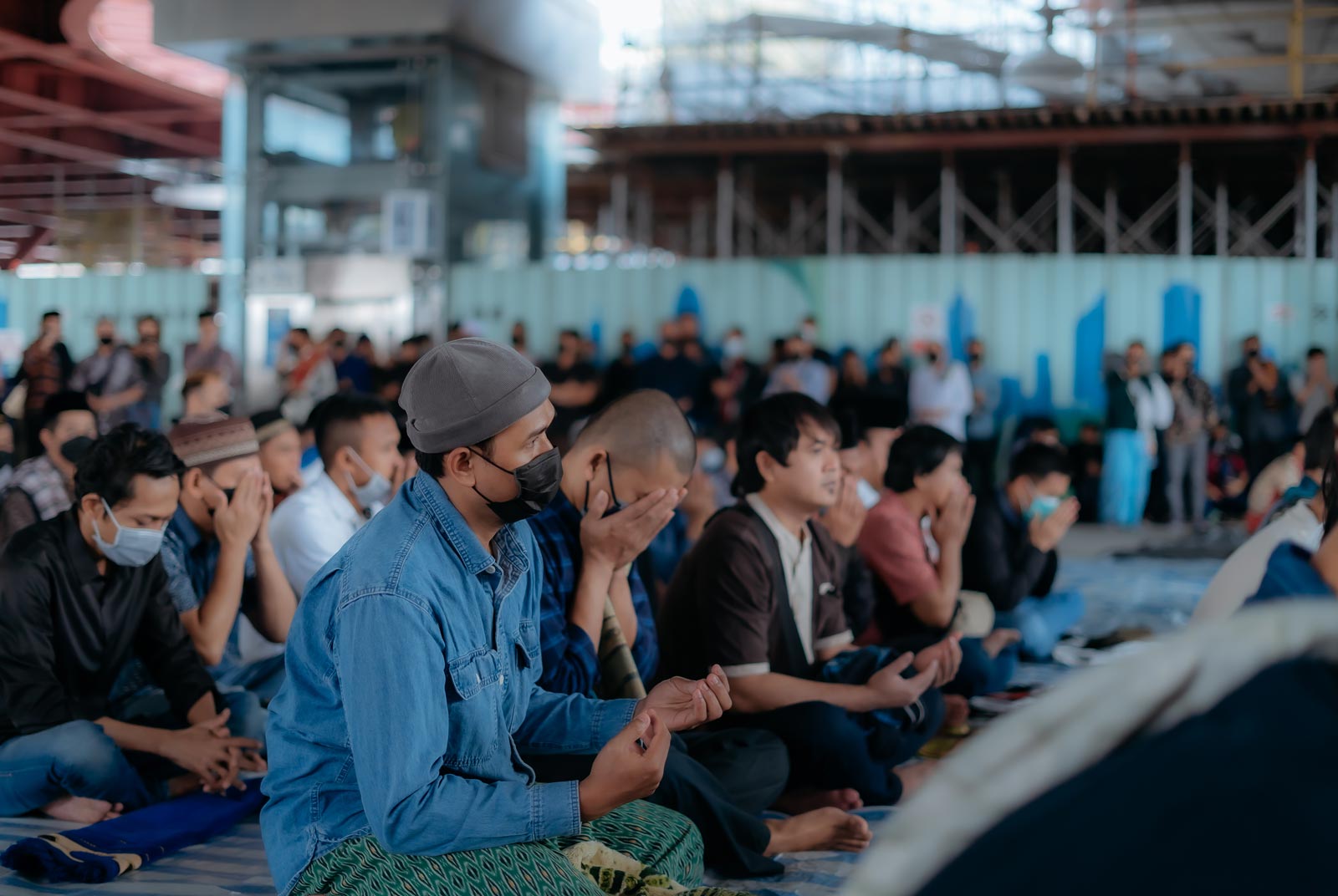
Source:Doc. Rizal Fadli
This op-ed discusses the rights of Indonesian migrant workers in Taiwan, including the right to worship, and suggests that government officials should be more proactive in protecting these rights and establishing better communication with the workers.
Views
Understanding the Rights of Indonesian Migrant Workers in Taiwan
By Hasan Basri Maulana Firmansyah (傅翰森)web only
Taiwan is a democratic country that really respects the value of tolerance. The proof is that there are lots of people with foreign citizenship who can live in Taiwan and get rights to treatment that are not much different from native Taiwanese citizens.
One great example is the right to have a religion; everyone is free to choose and carry out any religious teachings. Apart from that, there are also no specific prohibitions for certain religions in Taiwan.
Islam is one of the minority religions in Taiwan. Despite being a minority religion for Taiwanese natives, Islam seems to be the dominant religion for immigrants from Indonesia; both workers and students. This is evidenced by the many organizations or groups that aim to accommodate Muslims in Taiwan, such as PCINU Taiwan (Special Branch of Nahdlatul Ulama in Taiwan) or IWAMIT (Association of Indonesian Muslim Citizens in Taiwan). Information from the field indicates that most of the related organizations were initiated and run by migrants, the majority of whom are workers.
Late April, Muslims around the world, including in Taiwan, just ended the holy month of Ramadan by celebrating Eid al-Fitr. Like the Chinese New Year, Eid al-Fitr is also a very important religious holiday for Muslims because it is only held once a year.
Based on information shared by several Islamic organizations in Taiwan, there were at least 17 cities across Taiwan that held Eid al-Fitr prayers in congregation as one of the global Eid al-Fitr celebrations on Saturday (22/4). From all over the island, the venues for holding Eid al-Fitr prayers were not limited to mosques, but some used public facilities such as fields, parks, fish auction areas at the harbor, and station yards.
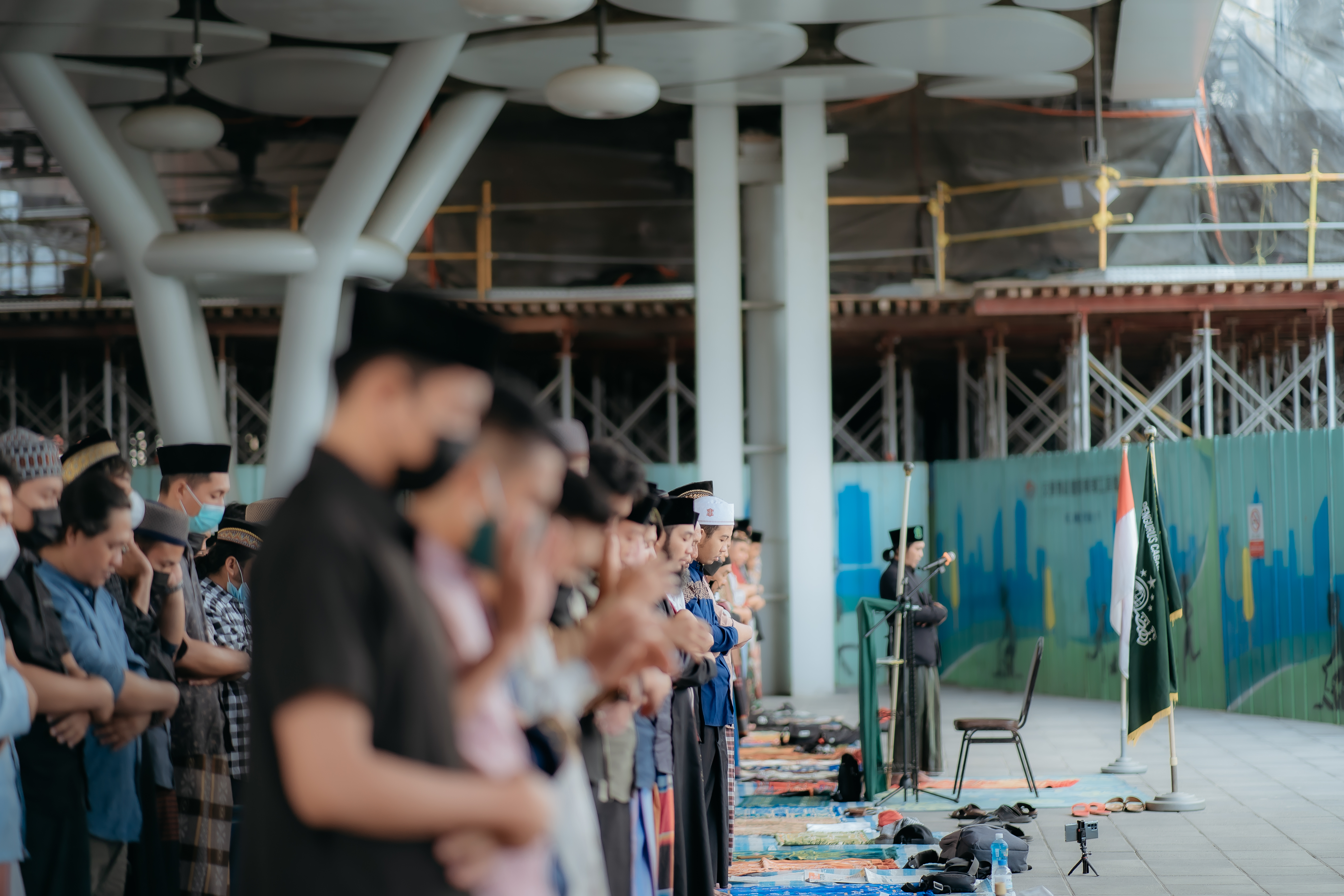 Implementation of Eid Al-Fitr 1444 Hijri prayer at Kaohsiung Main Station – Taiwan (Source: Doc. Rizal Fadli)
Implementation of Eid Al-Fitr 1444 Hijri prayer at Kaohsiung Main Station – Taiwan (Source: Doc. Rizal Fadli)
In this year, Kaohsiung City carved a new history where Muslims can hold Eid al-Fitr prayers in congregation for the first time in the courtyard of Kaohsiung Main Station. In addition to holding worship, the organizers of the Eid al-Fitr prayers at Kaohsiung Main Station, which were initiated by several Islamic organizations, also took advantage of the moment the migrants gathered for more useful things.
In this case, the organizers took advantage of the friendly moment, which was mostly attended by immigrants as a forum for outreach, discussion, and conveying aspirations. Therefore, the organizers invited several important parties, including IETO Taipei (Indonesian Economic and Trade Office in Taipei) represented by Novrizal as the Head of the Protection of Indonesian Citizens, representatives of the Kaohsiung National Immigration Agency, and representatives of Kaohsiung City Government Civil Affairs Bureau.
The Right to Work and Worship in Taiwan
In the forum that was held after the Eid al-Fitr prayer, there were discussions regarding various problems among Indonesian migrants in Taiwan. One of the issues discussed was the right to worship for migrant workers.
Although Taiwan provides freedom in terms of religion, it still has not designated Eid al-Fitr, which is a Muslim religious holiday, as a national holiday. The impact of this is that there are many Muslim migrant workers in Taiwan who still find it difficult to carry out the Eid al-Fitr prayer because they have to work.
Even though the work agreement has explained that workers have the right to worship, there are still many employers who do not permit their workers to do so. More specifically, this treatment is rarely given to migrant workers who work as domestic helpers.
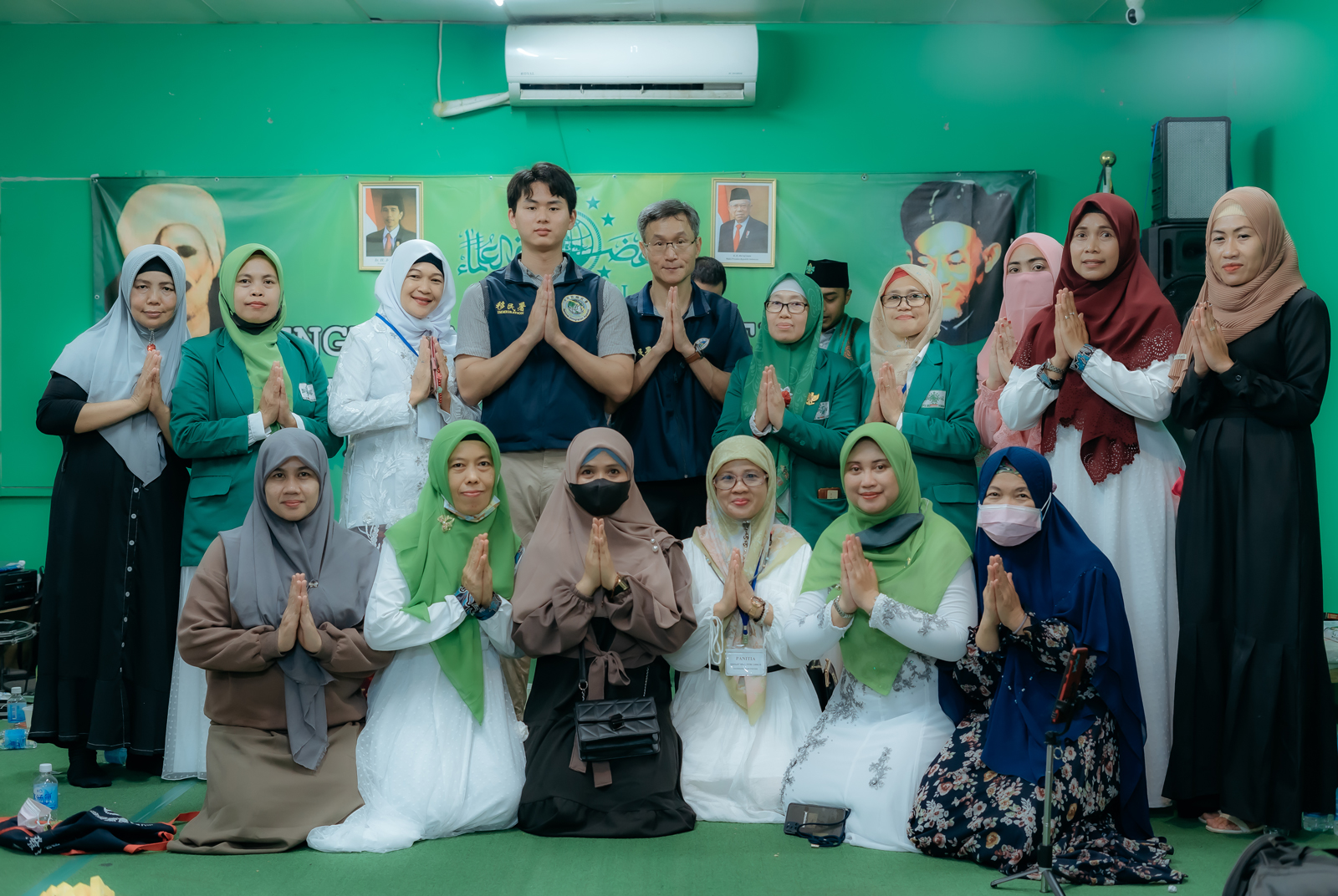 Representative of the Kaohsiung National Immigration Agency with members of the Muslimat PCINU Taiwan - Kaohsiung Branch (Source: Doc. Rizal Fadli)
Representative of the Kaohsiung National Immigration Agency with members of the Muslimat PCINU Taiwan - Kaohsiung Branch (Source: Doc. Rizal Fadli)
This was one of the problems that many migrant workers complained about. In the forum, the National Immigration Agency representatives explained that related problems can be reported via a contact. However, I don't think it's the right solution because if the complaint is made it could damage the relationship between workers and employers; the fatal impact could be termination of employment.
As one of the parties dealing with migrant worker problems, IETO Taipei and the National Immigration Agency should be able to work more actively in terms of monitoring and evaluation. That is, rather than waiting for reports from workers who may not necessarily produce a solution, it is better for the relevant parties to improve monitoring and advise employers to comply with existing regulations. Thus, the implementation of the regulations can run well without having to damage the relationship between workers and employers.
State Officials as Protectors of Citizens
Apart from being the representative of the Indonesian state in Taiwan, IETO Taipei should be even more active in fighting for the rights of Indonesians in Taiwan. More specifically in the context of the right to worship, IETO Taipei should not only issue circulars, but also establish direct communication with the relevant government so that the fulfillment of the rights of these migrants can be implemented to the fullest.
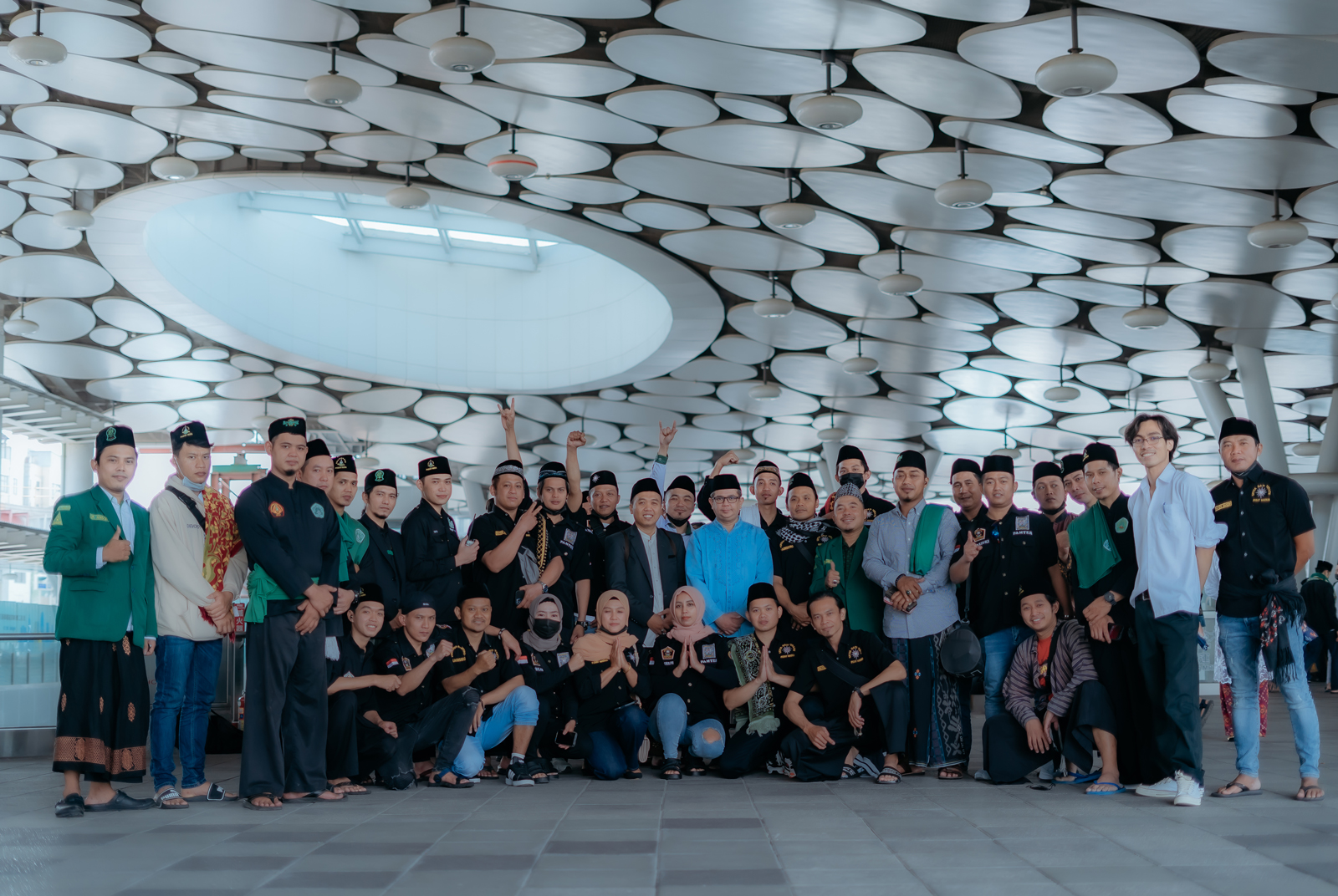 Novrizal, the IETO Taipei representative (center – blue shirt), with several congregations and the organizing committee for the 1444 Hijri Eid Al-Fitr Prayers at Kaohsiung Main Station – Taiwan (Source: Doc. Rizal Fadli)
Novrizal, the IETO Taipei representative (center – blue shirt), with several congregations and the organizing committee for the 1444 Hijri Eid Al-Fitr Prayers at Kaohsiung Main Station – Taiwan (Source: Doc. Rizal Fadli)
In accordance with IETO Taipei's vision of realizing Indonesia-Taiwan economic cooperation that benefits national interests in global development, IETO Taipei should be able to work even more closely. There are also forms of work that can be done, such as taking to the field more often to directly meet Indonesians without having to be invited to an event in advance; or make recommendations based on existing problems for both the Indonesian and Taiwanese governments.
After all, a state official is also a worker. As workers who work for the people and the state, state officials must not only make or implement regulations, but also oversee their implementation by continuously monitoring and evaluating. When related matters are carried out properly, I believe the rights and obligations of citizens can be maximally celebrated.
About the author:
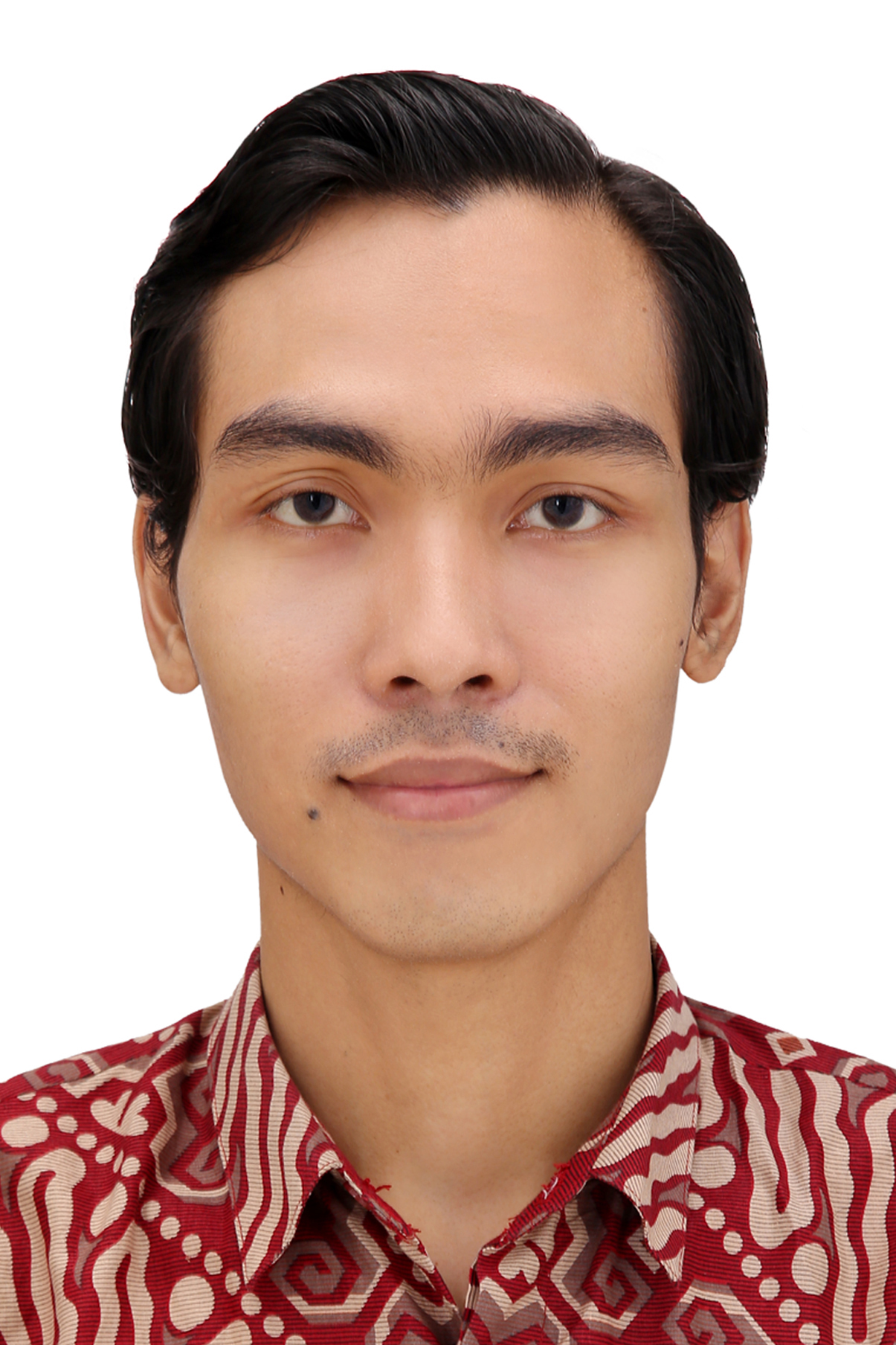
Hasan Basri Maulana Firmansyah (傅翰森), a doctoral student majoring in Mechanical Engineering at National Kaohsiung University of Science and Technology, researcher and freelance writer who is active in various social, artistic and cultural activities.
E-mail: [email protected] Twitter: @hasfirmansyah
Have you read?
- Taiwan’s press freedom is an asset to an embattled Asia
- Inclusivity leading to win-win positivity: Turning foreign labor into a talent resource
- The evolving role of immigration in Taiwan politics
Uploaded by Ian Huang






